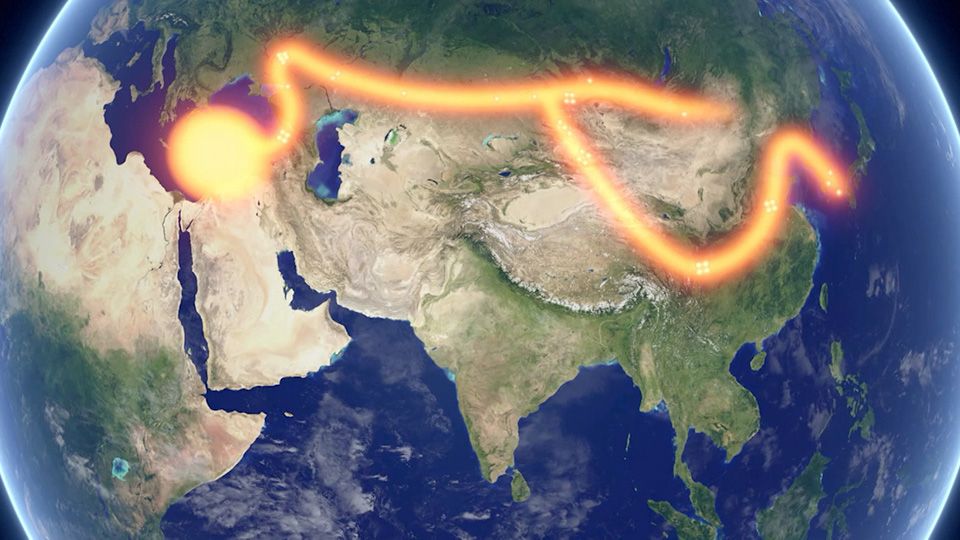Dunno I'd have to google that. I just remember hittites hitting lumps of metal.
Thinking Bulgaria ish being next to greece but there are loads of open cast mines in Turkey . I was glad to leave history at o level...
History is my mistress

always interesting and full of surprises. I reached O-Level but never really stopped studying the way it made the world we live in and the consequences we still live with today. Anyone who thinks it's just 'stuff that happened a long time ago' is living in a bubble.
Turkey, or more specifically the region of Anatolia, is your starting point on the long trek along 'the Iron Road', only it's not so much a road as a series of connected points through Central Asia where the technology for smelting iron was spread, and different cultures adapted, for making all kinds of things: cooking pots to ploughs, weapons to horse tack; notably the bit and the stirrup, enabling them to grow more food and develop cavalry tactics to conquer less mobile cultures. The Scythians were the most successful in developing it, but the Mongols took it to new heights and forged the largest land empire the world has ever known.
Eventually the new technology reached Japan from Korea where they developed it into an art and created the most prized weapon of all: the Katana. Only a handful of craftsman still work in the traditional way and their swords are still sought after as a symbol of wealth and power.
I found out about it in an
NHK documentary and the link gives a bit more info...
My memory on metallurgy is patchy as it's forty years since i went to Technical College as part of an apprenticeship: tech drawing and, weirdly, A-level English made up the course but it was floor-moulding that was most relevant to what i was doing in t'foundry - although it was being scaled back from large scale production they kept a handful of moulders on to make patterns for the die-cast moulds and it was fun to cast 'foreigners' in brass, aluminum and iron. I've still got a little Buddha cast in brass.
Over to you...


